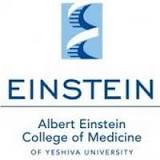Radiation Therapy, Paclitaxel, and Carboplatin in Treating Patients With High-Risk Endometrial Cancer
| Status: | Recruiting |
|---|---|
| Conditions: | Cervical Cancer, Cancer, Cancer, Endometrial Cancer |
| Therapuetic Areas: | Oncology |
| Healthy: | No |
| Age Range: | 18 - Any |
| Updated: | 4/21/2016 |
| Start Date: | September 2008 |
A Pilot Phase II Trial of Radiation Therapy "Sandwiched" Between Paclitaxel and Carboplatin in Patients With High-Risk Endometrial Cancer After Standard Surgical Staging
This phase II trial studies how well radiation therapy, paclitaxel, and carboplatin work in
treating patients with high-risk endometrial cancer. Radiation therapy uses high energy x
rays to kill tumor cells. Drugs used in chemotherapy, such as paclitaxel and carboplatin,
work in different ways to stop the growth of tumor cells, either by killing the cells, by
stopping them from dividing or by stopping them from spreading. Giving radiation therapy
with chemotherapy may kill more tumor cells.
treating patients with high-risk endometrial cancer. Radiation therapy uses high energy x
rays to kill tumor cells. Drugs used in chemotherapy, such as paclitaxel and carboplatin,
work in different ways to stop the growth of tumor cells, either by killing the cells, by
stopping them from dividing or by stopping them from spreading. Giving radiation therapy
with chemotherapy may kill more tumor cells.
PRIMARY OBJECTIVES:
I. To evaluate progression-free survival. II. To assess and document location of disease
recurrence (distant vs local vs both) using this treatment regimen.
II. To evaluate the toxicity of radiation therapy "sandwiched" between cycles of
paclitaxel/carboplatin chemotherapy in patients with high-risk endometrial cancer.
III. To evaluate the associations of cancer recurrence with tumor tissue expression levels
of insulin-like growth factor-I (IGF-I), IGF-II, insulin-like growth factor binding protein
1 (IGFBP-1) and -3, insulin receptor, IGF-I receptor, estrogen receptor, and progesterone
receptor.
OUTLINE:
CHEMOTHERAPY (weeks 1-9, 13-21): Patients receive paclitaxel intravenously (IV) over 3 hours
and carboplatin IV over 30 minutes on day 1. Treatment repeats every 21 days for 3 courses
during weeks 1-9 and 3 courses during weeks 13-21.
RADIATION THERAPY (weeks 8-13 or 8-15): Patients with stage I disease undergo high dose rate
(HDR) brachytherapy once weekly for a total of 5 fractions during weeks 8-13. All other
patients undergo external beam radiation therapy (EBRT) once daily (QD) 5 days a week for a
total of 25 fractions during weeks 8-12 and HDR brachytherapy once weekly for a total of 3
fractions during weeks 13-15.
After completion of study treatment, patients are followed up every 3 months for 2 years and
then every 6 months for 3 years.
I. To evaluate progression-free survival. II. To assess and document location of disease
recurrence (distant vs local vs both) using this treatment regimen.
II. To evaluate the toxicity of radiation therapy "sandwiched" between cycles of
paclitaxel/carboplatin chemotherapy in patients with high-risk endometrial cancer.
III. To evaluate the associations of cancer recurrence with tumor tissue expression levels
of insulin-like growth factor-I (IGF-I), IGF-II, insulin-like growth factor binding protein
1 (IGFBP-1) and -3, insulin receptor, IGF-I receptor, estrogen receptor, and progesterone
receptor.
OUTLINE:
CHEMOTHERAPY (weeks 1-9, 13-21): Patients receive paclitaxel intravenously (IV) over 3 hours
and carboplatin IV over 30 minutes on day 1. Treatment repeats every 21 days for 3 courses
during weeks 1-9 and 3 courses during weeks 13-21.
RADIATION THERAPY (weeks 8-13 or 8-15): Patients with stage I disease undergo high dose rate
(HDR) brachytherapy once weekly for a total of 5 fractions during weeks 8-13. All other
patients undergo external beam radiation therapy (EBRT) once daily (QD) 5 days a week for a
total of 25 fractions during weeks 8-12 and HDR brachytherapy once weekly for a total of 3
fractions during weeks 13-15.
After completion of study treatment, patients are followed up every 3 months for 2 years and
then every 6 months for 3 years.
Inclusion Criteria:
- Histologically-documented high-risk endometrioid adenocarcinoma with no visible
residual disease, defined by the following criteria:
- Surgical stage I disease with < 50 myometrial invasion and grade 3 tumor (IAG3)
with lymphovascular space involvement;
- Surgical stage I disease with >= 50% myometrial invasion and grade 2 or 3 tumor
(IBG2, IBG3);
- Any surgical stage II disease (II);
- Any surgical stage III disease (IIIA, IIIB, IIIC); and
- Any surgical stage IV disease with no residual macroscopic tumor
- Surgical staging to include total abdominal hysterectomy, bilateral
salpingo-oophorectomy, peritoneal washings, and lymph node samplings as per standard
Gynecologic Oncology Group (GOG) criteria
- Eastern Cooperative Oncology Group (ECOG) performance status of < 2
- Written voluntary informed consent
Exclusion Criteria:
- Serum glutamic oxaloacetic transaminase (SGOT) and/or serum glutamate pyruvate
transaminase (SGPT) > 2.5 times the institutional upper limit of normal
- Total serum bilirubin > 1.5 mg/dl
- History of chronic or active hepatitis
- Serum creatinine > 2.0 mg/dl
- Platelets < 100,000/mm^3
- Absolute neutrophil count (ANC) < 1500/mm^3
- Hemoglobin < 8.0 g/dl (the patient may be transfused prior to study entry)
- Patient has severe or uncontrolled concurrent medical disease (e.g. uncontrolled
diabetes, unstable angina, myocardial infarction within 6 months, congestive heart
failure, etc.)
- Patient with any prior chemotherapy or radiotherapy for pelvic malignancy
- Patients with dementia or altered mental status that would prohibit the giving and
understanding of informed consent at the time of study entry
- Patients with any history of cancer with the exception of non-melanoma skin cancer
are excluded if there is any evidence of other malignancy being present within the
past five years
We found this trial at
1
site
1300 Morris Park Ave
Bronx, New York 10461
Bronx, New York 10461
(718) 430-2000

Principal Investigator: Dennis Y. Kuo
Phone: 718-405-8082
Albert Einstein College of Medicine The Albert Einstein College of Medicine of Yeshiva University is...
Click here to add this to my saved trials